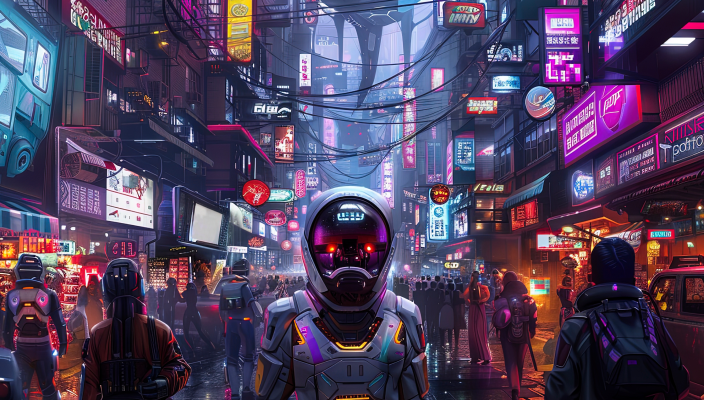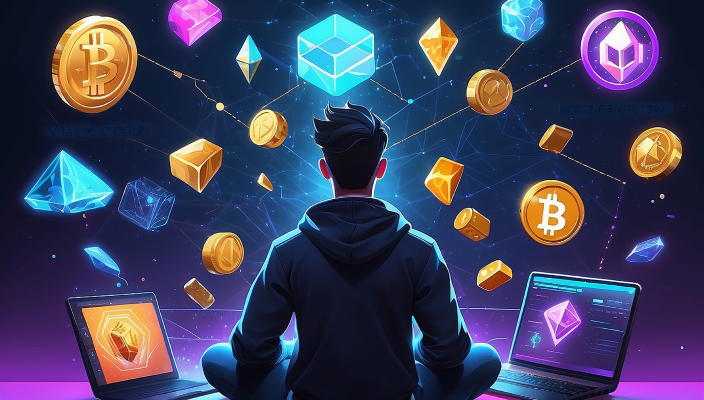Introduction
The world of digital assets has experienced tremendous growth in recent years, and NFTs (Non-Fungible Tokens) are at the forefront of this revolution. NFT marketplaces provide the backbone for buying, selling, and trading these digital assets, allowing artists, creators, and collectors to engage in a whole new economy. But what makes an NFT marketplace truly successful? In this article, we’ll dive into the 10 key features every NFT Marketplace Development Company should focus on to create a thriving platform, including innovative services like Composable & Rental NFT Development Services.
What is an NFT Marketplace?
An NFT marketplace is an online platform that facilitates the creation, listing, and trading of NFTs. These digital assets can represent anything from digital art to virtual real estate or in-game items. NFT marketplaces provide a seamless environment for artists, developers, and collectors to interact and transact. They differ from regular cryptocurrency marketplaces by offering more specialized features tailored to the needs of NFTs.
Top 10 Key Features Of An NFT Marketplace
Creating a robust and user-friendly NFT marketplace requires careful planning and the incorporation of critical features. Let’s explore the top 10 must-have features to ensure your NFT marketplace’s success.
1. Wallet Integration
A smooth user experience starts with wallet integration. Users must be able to connect their digital wallets (such as MetaMask, Trust Wallet, or Coinbase Wallet) easily to interact with the marketplace. This feature ensures secure storage and transfers of NFTs and funds.
2. Minting Mechanism
NFT minting refers to the process of creating NFTs from digital files. A well-built marketplace should allow creators to mint their digital assets effortlessly. This means offering an easy-to-use interface where users can upload their files, provide descriptions, and mint them as NFTs.
3. Advanced Search and Filtering
With the growing number of NFTs in the marketplace, a powerful search and filtering system is essential. Users should be able to filter results by categories such as art, collectibles, music, or by price, popularity, and rarity. This feature enhances user experience by helping them find the exact NFT they’re looking for.
4. Auction and Bidding System
NFT marketplaces thrive on buying and selling, and the addition of auction and bidding functionality increases engagement. This feature allows sellers to list their NFTs for auction, letting buyers compete with bids to secure the asset. This drives user activity and helps increase the value of the NFTs.
5. Royalties Management
For creators, royalties are crucial. NFT marketplaces should have built-in mechanisms to automate royalty payments whenever an NFT is resold. This feature ensures that creators continue earning from their work, even after the first sale.
6. Composable NFTs
Composable NFTs allow users to create and manage NFTs that can be broken down into smaller components or combined into larger assets. This feature is becoming popular for developers and businesses who want to build more complex digital assets. Offering Composable NFT Development Services gives a competitive edge by allowing for more versatile NFT usage.
7. Rental NFT Services
Rental NFTs are a growing trend, allowing users to rent digital assets for a specified time. This feature is especially useful for gaming assets, virtual real estate, or any NFTs with utility. By incorporating Rental NFT Development Services, the marketplace can attract a wider range of users interested in temporary ownership or usage of digital assets.
8. Security Protocols
With high-value transactions happening regularly, an NFT marketplace needs top-notch security. This includes implementing smart contract audits, two-factor authentication (2FA), and encryption to protect user data and assets. These measures increase user trust and platform credibility.
9. Multi-Chain Support
NFTs exist on various blockchains such as Ethereum, Binance Smart Chain, and Solana. A successful marketplace should offer multi-chain support, allowing users to interact with NFTs across different networks. This feature helps cater to a larger audience by accommodating diverse blockchain preferences.
10. User-Friendly Interface
Ultimately, the user experience (UX) determines how successful your NFT marketplace will be. A clean, intuitive interface that makes navigation easy will keep users coming back. Ensure that the marketplace is optimized for both desktop and mobile devices, offering a seamless experience across all platforms.
What Factors Should You Consider While Selecting the Best NFT Marketplace Development Company?
Choosing the right NFT Marketplace Development Company is critical for the success of your platform. Here are a few factors to keep in mind:
- Experience in Blockchain Development: Ensure the company has a solid track record in blockchain and NFT marketplace development.
- Comprehensive Services: Look for a company that offers end-to-end services, from design and development to deployment and maintenance.
- Security Expertise: Make sure the company prioritizes security and provides solutions such as smart contract audits and data encryption.
- Innovative Services: Companies offering Composable & Rental NFT Development Services will be better suited for creating a future-proof platform.
Create Your Own NFT Marketplace with Webllisto
When it comes to NFT Marketplace Development, Webllisto stands out with its cutting-edge solutions and deep expertise in the field. Webllisto offers a wide range of services, including:
- Composable NFT Development: With Webllisto, you can create NFTs that are modular and versatile, perfect for businesses and developers looking to offer more than just static assets.
- Rental NFT Development: Webllisto helps clients integrate rental services into their marketplace, allowing users to temporarily own or use digital assets without the need for full ownership.
With Webllisto’s expertise, you can build a platform that’s scalable, secure, and future-ready.
Conclusion
Building a successful NFT marketplace requires more than just an understanding of blockchain technology. It involves the careful incorporation of key features like wallet integration, minting, royalties management, and Composable & Rental NFT Development Services. By focusing on these features, your platform can stand out in a crowded market, ensuring long-term success.
If you’re ready to embark on your NFT marketplace journey, partnering with a reliable NFT Marketplace Development Company like Webllisto will give you the competitive edge you need.
FAQs
Q1: How can I create my own NFT marketplace?
You can create an NFT marketplace by partnering with a development company like Webllisto. We provide end-to-end solutions including blockchain integration, wallet support, and unique services like composable and rental NFTs.
Q2: What are Composable NFTs?
Composable NFTs are digital assets that can be broken down into smaller parts or combined into more complex items, offering more flexibility and utility for developers and businesses.
Q3: Why is wallet integration important in an NFT marketplace?
Wallet integration allows users to store, buy, and sell NFTs securely, making it a vital feature for seamless transactions in your marketplace.
Q4: What security features should an NFT marketplace have?
Key security features include smart contract audits, two-factor authentication (2FA), and encryption. These measures protect both user data and digital assets.
Q5: How do rental NFTs work?
Rental NFTs allow users to rent digital assets for a specific period, giving temporary access to the asset without transferring full ownership.
Q6: What is the significance of royalties in an NFT marketplace?
Royalties are essential because they ensure creators receive a percentage of sales each time their NFT is resold. This feature not only incentivizes artists but also helps sustain their income over time.
Q7: Can NFTs represent more than just art?
Absolutely! NFTs can represent a variety of digital assets, including music, videos, virtual real estate, gaming items, and even domain names. The versatility of NFTs allows for innovative applications across multiple industries.
Q8: How do I promote my NFT marketplace effectively?
Promoting your NFT marketplace can be achieved through social media marketing, influencer partnerships, content marketing, and community engagement on platforms like Discord and Telegram. Building a strong brand presence is key to attracting users.
Q9: What are the common challenges in NFT marketplace development?
Common challenges include ensuring robust security, integrating multiple payment methods, navigating regulatory compliance, and creating a user-friendly interface. Working with experienced developers can help mitigate these issues.
Q10: Is it possible to integrate existing NFTs into a new marketplace?
Yes, you can integrate existing NFTs into your marketplace by establishing compatibility with the blockchain they were created on. This process may involve additional steps to ensure proper functionality and ownership verification.
Also Read : How to build NFT Marketplace: A step by step guide for 2025
https://webllisto.com/how-to-build-an-nft-marketplace-a-step-by-step-guide-for-2025/









































